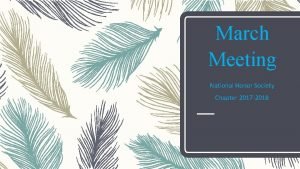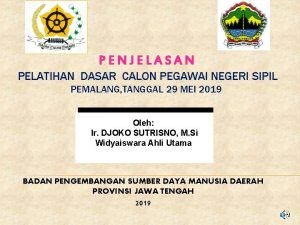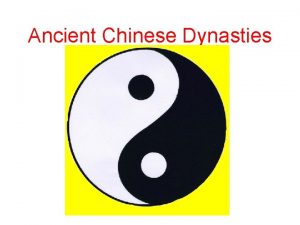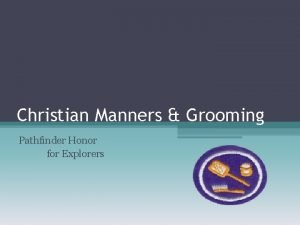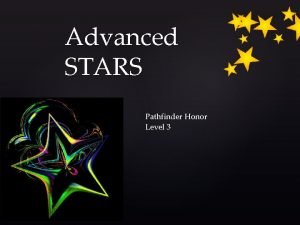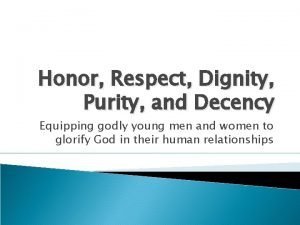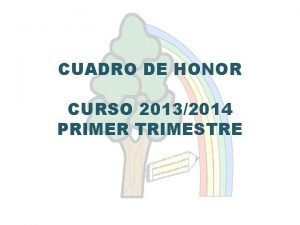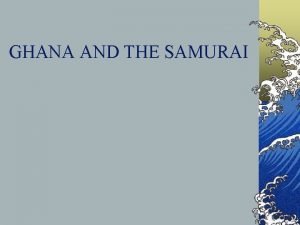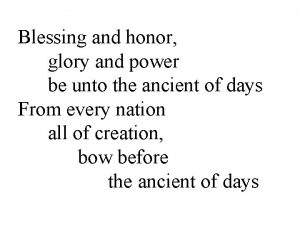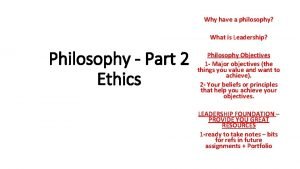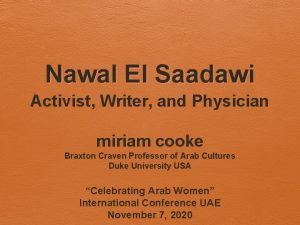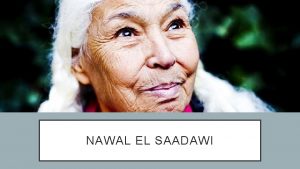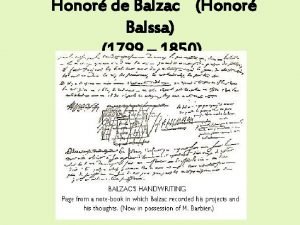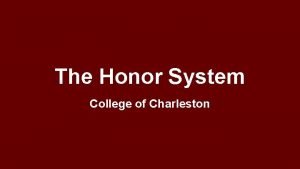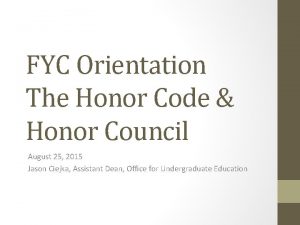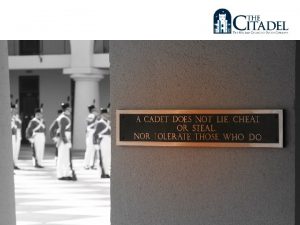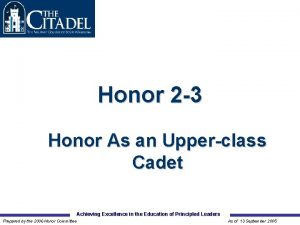ONLINE CONFERENCE IN HONOR OF NAWAL EL SAADAWI

























- Slides: 25

ONLINE CONFERENCE IN HONOR OF NAWAL EL SAADAWI International Conference on Celebrating Arab Women: Agents of Change and Progress (ICCAW-2020) November 7 -8, 2020 Dr. Nawar Al-Hassan Golley American University of Sharjah

MY TRAVELS AROUND THE WORLD: A NARRATIVE OF FREEDOM, MOBILITY AND CONNECTION NAWAR AL-HASSAN GOLLEY


OUTLINE OF PRESENTATION v v v Introduction: Why Nawal el Saadawi Travel Writing Importance of Travel Structure of the Book Construction of Self The Mirror: Through the Looking Glass Border Crossing Private Self & Public Persona Conclusion A Poem References

INTRODUCTION: WHY NAWAL EL SAADAWI • A Relentless Feminist Role Model for many Arab and non-Arab women and men. • Nawal el-Saadawi is one of the most important feminist activists and scholars in the Arab region who has received international acclaim. • She is one of the first Arab women to raise the issue of sexual oppression publicly in a daring manner; before her, Arab feminists discussed forms of social, economic, religious, and political oppressions. • The power of her work comes from the fact that she, personally, experienced all the systems of oppression, sexual, economic, political, against which she fought.

THE EVIL TRIANGLE: SEXUAL, ECONOMIC, POLITICAL • Saadawi became a controversial writer, having been fiercely attacked by critics and her writings having been banned by some Arab regimes. • No other Arab woman has been praised so much by many and attacked so much by many others. Both the praise and the attack came from within and outside the region. No wonder she fought against the Evil Triangle: Gender, Class, and Political Oppressions • From within: Saadawi has criticized those who are responsible for women’s status and for class oppression in the region. • From outside: She has also criticized the colonial/imperial powers that have maintained the control of women and poor countries.

CELEBRATE NAWAL EL SAADAWI • For all the mentioned reasons and others, her writings, her activism, her resilience against all sorts of attacks, Nawal el-Saadawi deserves to be celebrated today and everyday, as in this Conference.

DEDICATION To all who travel and who know exile far from the homeland. And to all who know exile in the homeland. Nawal El Saadawi

WHY WRITE ABOUT TRAVEL? • When I wrote to Saadawi asking her why she wrote Travels, she reiterated what she wrote in her Introduction to the translation, she wrote: “To express my views about what I see in other countries, and how in this light I see the self also. It is a travel book in a different way. Both travel to the other and travel to the self. You can see both in a different light. ” (1991)

TRAVEL WRITING • “Is the most socially important of all literary genres. It records our temporal and spatial progress. It throws light on how we define ourselves and how we identify others. Its construction of our sense of ‘me’ and ‘you’, ‘us’ and ‘them’, operates on individual and national levels and in the realms of psychology, society and economics. ” (Tim Youngs, The Cambridge Introduction to Travel Writing, 2013)

IMPORTANCE OF TRAVEL • “I began to realize that traveling outside the homeland is necessary, not only to know other countries and other peoples, but to know who I am and who we are. For knowing the self can only be achieved in the light of knowing the others. ” • In addition to knowing the self, as a purpose for her travels and writing about her travels, according to Saadawi: “We see our homeland more clearly when we are away from it than when we are in it. I have seen many positives and negatives in the East and the West, which have revealed some of the positives and negatives within my own homeland. ” (TAW, viii)

IMPORTANCE OF TRAVEL • “The processes of affiliation and differentiation at play within it can work to forge alliances, precipitate crises and provoke wars. Travelling is something we all do, on different scales, in one form or another. We all have stories of travel and they are of more than personal consequences. ” (Tim Youngs, The Cambridge Introduction to Travel Writing, 2013)

MY TRAVELS AROUND THE WORLD: PUBLICATION DETAILS • Saadawi wrote ������ �� ���in 1984. • The two volumes got published in 1986, Cairo. • The book covers her travels over the 1960 s and the 1970 s • Nawal El-Saadawi. My Travels Around the World. (Trans. Shirley Eber). London: Methuen, 1991.

STRUCTURE OF THE BOOK: TRAVELS OVER THE 1960 S AND 1970 S • My Travels around the World records Saadawi’s impressions of and experiences in the various countries she traveled in. She first departs from her “homeland” to attend a medical conference in Algeria. Then it is on to Europe and the United States. North America is followed by Jordan. A stop in Helsinki and a visit to the Soviet Union and Central Asia come next, and then Iran. A long visit to India and then travels in East and West Africa ending her travel account with a conversation on politics and colonialism with the Senegalese writer and film maker, Ousmane Sembène, at Dakar Airport.

STRUCTURE OF THE BOOK • The structure within each separate part, however, is not as simple as the structure of the book as a whole, though. • It is multidimensional in nature and is anything but chronological. • Travel usually refers to movement in space; in Saadawi's Travels, there is also a nonlinear movement in time.

THE MIRROR/LOOKING GLASS & BORDERCROSSING • In reading Travels as a journey to the self and to the wider human world, two motifs recur throughout the book: the mirror and bordercrossing. • The two motifs are connected, for Saadawi travels out of a double desire to rediscover the self through understanding the other and to cross the borders of her own country, which she calls prison, only in order to know it better.

THE MIRROR: THROUGH THE LOOKING GLASS • From one chapter to another and one country to another, Saadawi is looking at her childhood, adolescence, and adulthood, hence developing a new understanding of herself and of her life throughout. • Travel, for Saadawi, is not "flying in planes, visiting museums, sleeping and eating in luxury hotels" (TAW, 107); it is “walking around the streets and dusty quarters, discovering people everywhere, especially in those places from which tourists run or where they put their handkerchiefs to their noses should they happen to pass by. ” (TAW, 107)

TRAVEL FREED HER FROM THE COLOR • Saadawi is honest about the fact that as a child she struggled with the color of her complexion as she was constantly been teased about her dark complexion by her maternal grandmother, who was fair-skinned, calling her "Slavegirl warwar" (TAW, 172). Travel helped her see herself “beautiful”. It took her some time before she finally decided to stop wearing white makeup and face the world as she really is, a dark-skinned woman: “The one true love of my life is the love of my real self. In spite of that, I only gave up make -up completely after I understood the worth of my mind, and then had the courage to face the world with a clean and washed face. ” (TAW, 172)

BORDER-CROSSING • Travel helped Saadawi cross many socially established borders. Discarding her makeup box, given to her by her maternal aunt to cover her dark skin (TAW, 27), and straightening the stoop that her paternal aunt advised her to walk with to hide her height (TAW, 27). • Saadawi grew to build an identity through transgressing many prescribed roles and rules of what a woman should be and could do.

PRIVATE SELF AND PUBLIC PERSONA • The move in tone in the narrative from being personal, self-reflective, and analytical to becoming more political, self-assured, and descriptive can be said to mark Saadawi's transformation into a public figure. The self that she tries to discover and construct in the first half of the book seems to be lost behind the public persona in the second half. Paradoxically, she becomes at once more self-assertive yet less concerned with self-exploration and is more turned outward toward concern for other people and for the surroundings. Indeed, the narrative in Travels reflects the tension between personal and public identities. The Arab or Egyptian identity that she carries with her everywhere does not take over other identities that Saadawi seems to be willing to embrace.

CONCLUSION: RECOMMENDATION • “My Travels Around the World is a unique and invaluable historical account, both politically and socially, of a changing world, by one of its most courageous and honest writers” (Methuen, 1991)

“FOR NAWAL EL-SAADAWI” ~ ANGELE ELLIS MIZNA: PROSE, POETRY AND ART EXPLORING ARAB AMERICA LITERATURE IN REVOLUTION SUMMER 2012, VOL 13. 1 "This revolution is too late, but anyway, it came. So--" Nawal El Saadawi It is your face transfixed in Cairo’s Tahrir Square "I am becoming more radical with age. I have noticed that writers, when they are old, become milder. But for me it is the opposite…" your cotton hair in bunches like a girl’s your eyes glittering like Yeats’s Chinese sages carved in lapis lazuli with a hopeful long-legged bird

“FOR NAWAL EL-SAADAWI” ~ ANGELE ELLIS Like sacred pieces of the Black Rock held together with slashed lines of silver "Plastic surgery is a post-modern veil…" but your face, like the gift of your name, is lifted to the weathers of experience you shed three husbands and the caution of your children you walk out of jails that shatter like discarded mirrors "They will never give it up by choice. Even a husband in the house, no—power has to be taken with power…"

“FOR NAWAL EL-SAADAWI” ~ ANGELE ELLIS you wake and sleep in the Square with this dream, day and night "Women and girls are beside boys in the streets. They are—and we are calling for justice, freedom and equality…" you recall the stolen flower of your womanhood "In Europe and America, women are circumcised mentally…" A young man stands before you with his bride. He tells your books have made him a better man: Because of them I wanted to marry not a slave but a free woman

WORKS CITED • Butor, Michel. “Travel and Writing. ” In Defining Travel: Diverse Vision, ed. Susan L. Roberson, 69 -87. Mississippi: University of Mississippi Press. 2001 • • • Coles, Tim, and Dallen J. Timothy, eds. Tourism, Diaspora, and Space. London: Routledge. 2004 • • Jill Waters, "Banned and Threatened and Striding Ahead, " The Independent, July 13, 1991. • Mabro, Judy. Veiled Half-Truths: Western Travellers' Perceptions of Middle Eastern Women. London and New York: I. B. Tauris and Co. , 1991. • Mills, Sara. Discourses of Difference: An Analysis of Women's Travel Writing and Colonialism. London and New York: Routledge, 1991. • • Thompson, Carl. Travel Writing. London: Routledge. 2011 El-Saadawi, Nawal. My Travels around the World. Trans. Shirley Eber. London: Methuen, 1991. Humm, Maggie. Border Traffic: Strategies of Contemporary Women Writers. Manchester: Manchester University Press, 1991. Sharabi, Hisham. Neopatriarchy: A Theory of Distorted Change in Arab Society. New York: Oxford University Press, 1988. Youngs, Tim. The Cambridge Introduction to Travel Writing. Cambridge University Press, 2013.
 Nawal t10
Nawal t10 God's covenant
God's covenant Emotional or subjective acting
Emotional or subjective acting Pillars of nhs
Pillars of nhs Kartu bimbingan aktualisasi mentor
Kartu bimbingan aktualisasi mentor Huangdi the yellow emperor
Huangdi the yellow emperor Abk honor society
Abk honor society Musikalische parameter
Musikalische parameter Which medal of honor recipient is described
Which medal of honor recipient is described Christian grooming and manners honor answers
Christian grooming and manners honor answers Santo dadivas de amor letra
Santo dadivas de amor letra Stars honor pathfinders
Stars honor pathfinders Nutrition pathfinder honor
Nutrition pathfinder honor Honor bedeutung
Honor bedeutung Nshss stole
Nshss stole You deserve the glory and the honor song
You deserve the glory and the honor song Mejor es pobre con honor que rico con
Mejor es pobre con honor que rico con Cuadro de honor segundo trimestre
Cuadro de honor segundo trimestre Samurai code of honor
Samurai code of honor Blessing and honor glory and power
Blessing and honor glory and power What is ethics in philosophy
What is ethics in philosophy Left hand shake meaning
Left hand shake meaning For honor leroy athanassoff
For honor leroy athanassoff On that rugged cross my salvation
On that rugged cross my salvation Ffa brotherhood
Ffa brotherhood The eagle charge
The eagle charge



